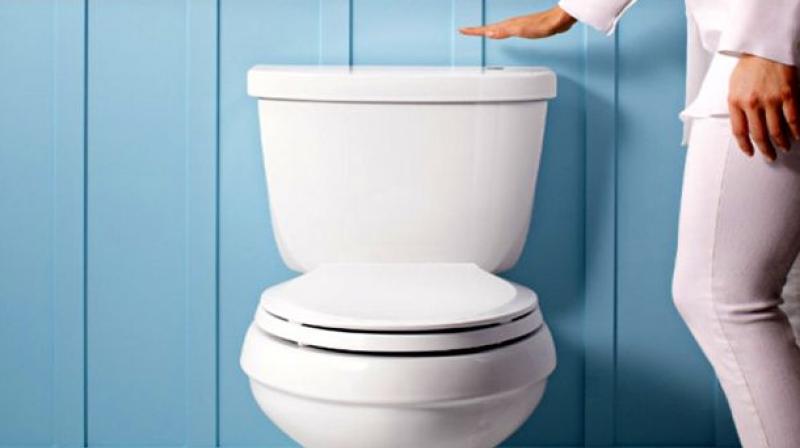India is losing on its GDP due to poor sanitation

Chennai: Why so much hype for the sanitation campaign, one may wonder. From health and hygiene, access, economy and tourism perspectives, toilets are very essential. India is losing USD 54 billion of its GDP annually due to inadequate sanitation. And poor sanitation and hygiene accounts for two lakh deaths in the country per year, a senior official said.
Over 18 per cent of the urban households lack individual toilets. “If we provide good sanitation system, we can save a loss of six per cent of the GDP due to lack of sanitation. Almost three per cent of children die due to lack of sanitation. We can save lives if we provide a good sanitation system,” says Praveen Prakash, National Mission Director of Swachh Bharat Mission (Urban), under the Union urban development ministry.
The urban areas have been facing challenges due to lack of space. “But this was gradually overcome. Thanks to the efforts of Prime Minister Narendra Modi, the Clean India movement has become a silent revolution. The PM has provided funds to the tune of Rs. 63,000 crore for the Clean India programme for the next five years,” Mr Prakash said on Monday. He was speaking at the three-day fourth conference on Faecal Sludge Management being held here.
Contending that behavioural change is central to the sanitation programme, he said people from all walks of life including religious leaders, cine stars, sports icons, industrialists have joined this movement. Further, all the ministries including petroleum and railways, have been asked to make a sanitation budget. “Achieving sanitation for all, achieving Swachh Bharat is not the responsibility of five or six ministries but all the ministries and the people too,” he added.
Enviu to launch SaniNation prog for India
The Rotterdam headquartered developer of innovative social enterprises - Enviu which has its regional office in Bengaluru, has received the Bill & Melinda Gates Foundation's grant to start the programme SaniNation to develop businesses in the Faecal Sludge Management (FSM) sector in India.
SaniNation curates promising business models focused on treatment and resource recovery from across the globe, and adopts the models to the Indian urban context. Currently the organisation is looking for local collaborations with government agencies, seasoned entrepreneurs and businesses in India.
“Human waste treatment, reuse and its conversion into valuable by-products presents an under explored business opportunity,” says Luan Nio from Enviu.
The yet unexplored market of reusing human waste offers a great number of hidden business opportunities. Faecal sludge can for example be processed into solid fuel, organic fertiliser, insect-based animal feed, biogas, or even building materials.
Human waste is often discharged into storm drains, waterways, or landfills due to a lack of proper infrastructure, equipment and incentives, thus leading to contamination of water sources and posing a potential threat to human health and environment. More information on the programme can be found on http://sanination.org/

